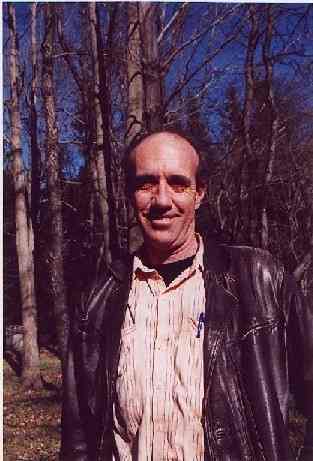GRATITUDE
"A person, however learned and qualified in his life's work, in whom gratitude is absent, is devoid of that beauty of character which makes personality fragrant."
Hazrat Inayat Khan
I realized something the other day. It came quite suddenly. I was at a yield sign, entering a parkway, waiting for a space in the traffic to merge. Someone slowed down and flashed their lights at me to let me know they would allow me in. I merged and raised my hand in a sign of gratitude. Just at that moment, I realized that, when I do the same for someone, allow them to merge into traffic ahead of me, I more or less expect some sign of gratitude from them. A wave will usually do or a nod of acknowledgment. When you drive the interstate at night and a truck passes you and you flash your lights to let the driver know that the rear of his trailer has cleared the front of your vehicle and it is safe to re-enter the right hand lane, the driver will usually flash his running lights as an acknowledgment of your politeness. I expect it and almost always get it but not every time. When the truck driver does not flash his running lights I feel cheated. It is silly I suppose but the memory of disappointment is there.
Another part of the realization I had was recognizing my expectation of disappointment. It was strange to realize that the two emotions exist simultaneously. On the one hand I expect to see someone's gratitude and on the other I expect to be ignored. And there is another thing that occurs to me.
I have this habit, which I suppose a lot of people who lived thru the 60's have. When I go someplace where I know the parking is going to be tight I ask what I call my parking genii to find me a parking space. When I arrive where I am going and find the parking space, which is almost always there, I thank my parking genii. I think of it as expressing gratitude to the Universe for the experience of living, even in this small way.
I used to think God, now I think Universe but I suspect they are the same thing. To have this wonderful opportunity of experiencing physical reality on such a beautiful planet; to be able to challenge our assumptions and values; to create a life's dream in a strange land - all of these things challenge us in a way that is truly creative and nourishing to the soul.
These little moments of gratitude which are expressed between strangers on the road, as I mentioned above, or an indication of the possibility of gratitude that we need to express toward whatever we think of as the creator of this wonderful opportunity. It may be random chaos or it may be intricately planned but whatever did create it, there is no doubt that it is wonderful and genuinely worth the effort.
What is to be avoided is gratitude guilt. Ya know? Someone, usually your mom but it could easily be another authority figure in your life, telling you that you should be grateful. This spoils gratitude. It is easy to see that if a child is continually told that they should be anything they are going to resent it. It isn't a natural emotion if it is forced on you. One of the most special moments in my life was when my grand daughter, then just over two, crawled up into my lap and said, "I love you grandpa." I thought I would melt. No one told her to do this, it was quite spontaneous. How do you think she would do if she were told to tell me? I cherish this moment and how she has grown to be totally honest about her emotions, angry as well as elated.
I believe that most cultures have some kind of ceremony of gratitude. Our Western culture, mostly Christian, certainly has these. I can remember sitting in Lutheran church, listening to the minister talk about being grateful and looking around at all the stern unhappy faces. I was a kid but I would wonder why nobody looked all that grateful. It confuses a little kid to be told that he should be feeling gratitude for being forgiven for sins that he didn't even know he was responsible for. How lame is that, but that is the message that was given, is still being given I suppose. Gratitude should not be demanded.
The question then is what is genuine in our emotions? If we express gratitude in some way do we expect an acknowledgment? And if we do then why do we expect something that should be freely given? It is a challenge isn't it.
This all goes back to my last blog about questions. Ultimately what is necessary is that we continually examine our emotions, our thoughts and our subliminal beliefs. Everything comes under the mental microscope, nothing is exempt. And then, eventually, gratitude will come.
Love & Blessings, Musawwir

